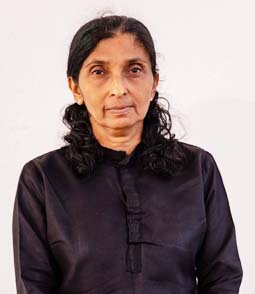Covid-19 pandemic has taken away focus, resources from cancer patients needing palliative care: GIM study

Pandemic is re-defining the global health-care scenario. Awareness in the community about the importance of palliative care is lacking amongst the Goan population
Panaji, Aug 2021: The overwhelming focus on patients suffering from Covid-19 during the pandemic has unfortunately led to less focus being given to patients with life threatening incurable diseases like who are in need for palliative care, a latest study conducted by the Goa Institute of Management on patients admitted to palliative centres in Goa and Kerala has revealed.
The inter-state study, whose objective was to broadly understand the social determinants and satisfaction of cancer patients under palliative care in Kerala and Goa during Covid 19 pandemic, as well as to explore the patients’ satisfaction vis a vis palliative care services during Covid pandemic has also advocated long-term strategies beyond the pandemic, to strengthen palliative care services in order to deal with future disasters.

“The severity of the COVID-19 pandemic has resulted in limited provision of palliative care services throughout the country. Physicians and nurses who are trained in palliative care have often been deployed to deliver emergency care for people with COVID-19. When the health-care system is overwhelmed with COVID-19 patients, and the resources are limited, cancer patients may have limited access to health care system and are able to avail supportive treatment only,” the study conducted by Dr. Vilasini Devi Nair and Prof. Vithal Sukhathankar, faculty members at the leading B- school, states.
“In a context of resource constraints, priority has been given to interventions aimed at saving people’s lives over palliating discomfort among seriously ill people and their families. Governments must urgently recognize the role of palliative care during COVID-19 pandemic and ensure these services should be integrated into the health care system response in a creative way,” it adds.
The research, which is based on interviews with 20 randomly selected cancer patients admitted to palliative care facilities in Goa and Kerala, also underlines the importance of focusing on “designing immediate strategies for effective implementation of palliative care during COVID-19”.
Dilasa Centre for the terminally ill, based in Ponda, partnered with the professors on the study and offered the necessary inputs.
Said Dr Narayan S. Usgaonker, Chairperson of IMA Ponda Charitable Trust which managed the Dilasa Centre, “Palliative care in India is in it’s infancy, with only 1% of deserving patients gaining access to palliative care. In Goa similar conditions prevail.”
Dr Narayan added, “The ‘quality of death ‘index which is a measure of the end-of-life care, has been the lowest across the Indian subcontinent ,as compared to other countries. If we aim to improve the ‘quality of death’ index , we have to create awareness in the community about the importance of palliative care which is lacking amongst Goan population . This can be achieved with health education to the community and healthcare providers. There are already attempts to incorporate the concept of palliative care in medical curriculum.”
The study comes at a time when the Covid 19 pandemic has led to significant damage to global population, and is redefining the global health-care scenario.
“With millions affected, the World Health Organization (WHO) is reporting an average death rate between 2 percent and 4 percent, with the death rate among elderly patients at 15–22 percent. Patients with severe life-limiting illnesses such as advanced cancer, end-stage organ impairment, comorbidities, and the elderly are at increased risk of mortality from COVID-19,” Prof. Sukhathankar states.
“Moreover, there are several resource limitations and restrictions to avail the standard cancer care due to robust measures taken for infection control. In this situation, palliative care in cancer patients is risky and they deserve special attention. Their symptom management, psychological, social, cultural needs tremendously increase during the epidemic. Thus, we need to recognize the unique palliative care needs of cancer patients during pandemic,” the study further states.
Citing an example, the study states that Dilasa, a palliative care centre in Goa for the terminally ill, witnessed an 80 percent reduction in in-patient admissions when it came to palliative care, while some patients postponed appointments given the risk of potential infection.
“Instead of admissions, outpatient visits and follow-up through phone calls were given priority. At the same time, we observed that many critically ill patients were not admitted in cancer care facilities and hence progressed to a serious stage,” the study further states, adding that patients with severe pain, bleeding and in final stage with metastasis were sidelined from the general health care system and they were taken care at palliative center in the last moments.
“A strong network of palliative care volunteers remains the backbone of effective functioning of palliative care unit serving the rural population. Volunteers stress upon importance of palliation to improve quality of life to the patient and their relatives with a special reference to the importance of pain management” said Dr. Narayan.


